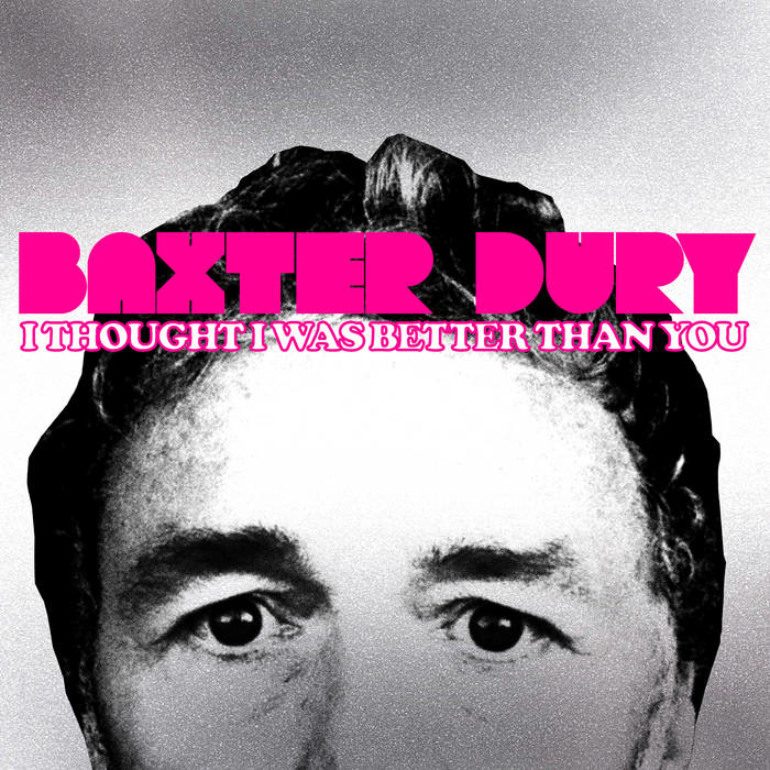

Unconventional, hip hop influenced, social commentary
“You want to be like Frank Ocean, but you don’t sound like him,” berates the chorus of “Shadow”, the eighth track on I Thought I Was Better Than You. This is a self-aware critique for British indie artist Baxter Dury. The 51-year-old has been releasing music since 2002 – while he’s always leaned towards a half-spoken style, Dury’s music has grown less and less melodic in recent years, trading its instrumental richness for a moody, hip hop influenced sound, Dury, however, is well acquainted with this clash.
I Thought I was Better Than You begins with “So Much Money”, an identity crisis that borders on goofy. Pleas of “who am I, daddy?” are set to a backing of smooth horns and what almost sounds like an otamatone, setting the tone for the album both stylistically and thematically. Amid the recent slew of commentary on nepotism in the music industry, he uses his newest album to examine his own position as the son of new wave artist Ian Dury, over-enunciating his way through commentary on Bohemian culture in “Aylesbury Boy” and begging “why should I be condemned because I’m the son of a musician?” on “Leon.” However, his socially conscious lyrics and indie hip hop instrumentation don’t serve to make Dury sound more contemporary. Several of his attempts to incorporate modern flares into his music are misses, with a lack of lyrical subtlety and poor vocal editing.
Luckily for I Thought I Was Better Than You, the clash between Dury’s aspirations and his abilities doesn’t always end in disaster. The unique combination of Dury’s vocal style and instrumentation electrifies the lounge-influenced “Celebrate Me.” In contrast to the at-times stiff rapping on earlier tracks, the vocals in the bass-heavy “Leon” are slurred enough to give the impression of an intoxicated, fading rockstar. The lyricism on “Pale White Nissan” is torn between hyping Dury up in the fashion of many modern rap tracks, and tearing him down for even trying to impersonate this style that he’s clearly so unsuited for.
The album really hits its stride towards the end, with Dury’s vocals finally finding their balance between slurred and over pronounced in the standout “Shadow.” The album finishes out with the 2010s britpop glitz of “Crowded Rooms,” leading into the final song, “Glows.” A Pink Floyd reminiscent acoustic track, “Glow,” is skillfully performed, serving as evidence that Dury is a capable musician. He knows how to write a conventional song; his unconventional style, then, is a highly deliberate choice.
I Thought I Was Better Than You may leave listeners at a loss as to who exactly it’s for – Dury, however, plays within this loss, acknowledging that the music he makes doesn’t match the sound of his voice or the place he came from. He uses this dissonance to illustrate the war between who he is as an artist and who he wants to be – socially conscious and with the times. While it doesn’t always pay off, this clash is what makes the album interesting, and worth a listen for enjoyers of Baxter Dury, 70s hip hop, modern R&B or someone who just wants t0 shake things up a little.
